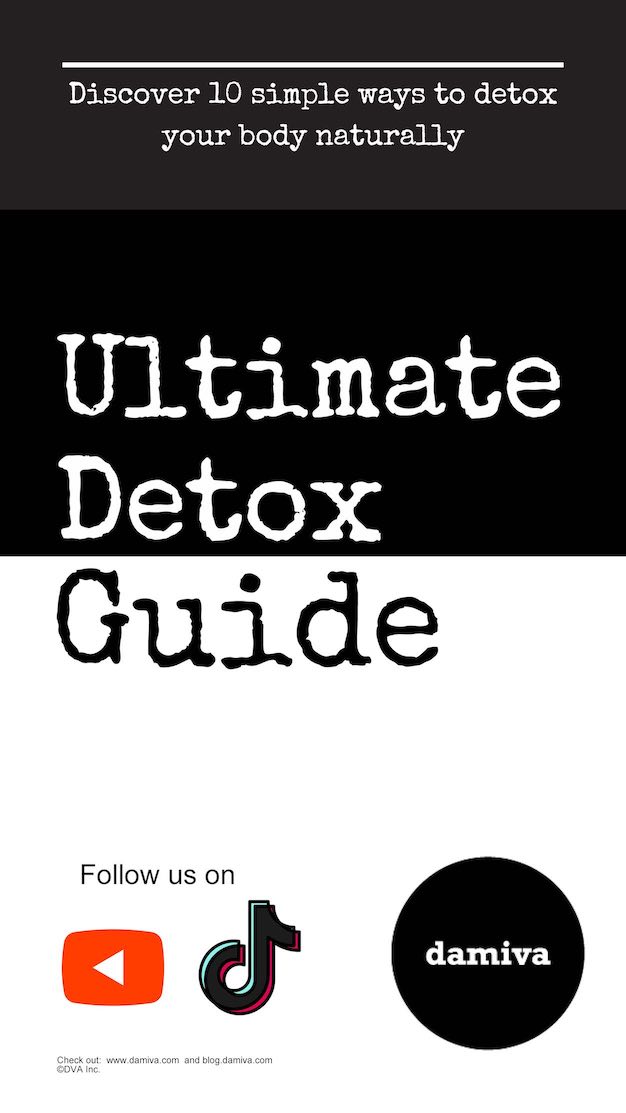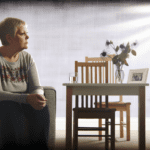
Menopause and Men’s Perspective
Menopause is a natural biological process that marks the end of a woman’s menstrual cycles and reproductive years. It is diagnosed after a woman has gone 12 consecutive months without a menstrual period. The transition, often occurring between the ages of 45 and 55, involves significant hormonal changes, primarily a decline in estrogen production. This hormonal shift can lead to various physical symptoms such as hot flashes, night sweats, and osteoporosis, as well as emotional symptoms including mood swings and irritability.
Comparing Menopause to Male Aging
While menopause is a distinct phase in a woman’s life, men experience a more gradual hormonal decline known as andropause or “male menopause.” Testosterone levels in men typically decrease slowly over time, without the abrupt hormonal plummet women face during menopause. This gradual change can result in subtle shifts in energy levels, mood, and libido, but it lacks the intensity and suddenness of menopause, making the experiences and challenges of each gender’s aging process quite different.
The Psychological Shift During Menopause
The psychological impact of menopause can be profound. Women may experience a range of emotions, from a sense of loss related to fertility to anxiety about aging. The hormonal upheaval can exacerbate these feelings, leading to depression or a sense of disconnection. For men witnessing their partners go through these changes, the psychological shift can be confusing and distressing, as the woman they knew seems to be transforming before their eyes.
Empathy Gap: Men’s Understanding of Menopause
There exists a significant empathy gap when it comes to men’s understanding of menopause. Many men find themselves unprepared for the changes their partners undergo during menopause. The lack of open dialogue and education about menopause contributes to misunderstandings and can strain relationships. Men may misinterpret their partner’s menopausal symptoms as personal rejections or a loss of love, rather than the result of a natural biological process. This gap in empathy and understanding can lead to feelings of isolation for both partners and, as in Paul’s case, can contribute to the disintegration of a marriage.
As society progresses, with over half of workplaces now offering menopause support compared to a mere 10% in 2019, it’s crucial for men to become part of the conversation. Understanding menopause is not just a woman’s issue; it’s a human issue that affects relationships, families, and workplaces. By fostering empathy and seeking education on the subject, men can better support their partners through this transition and potentially safeguard their relationships against the challenges menopause can bring.

The Hormonal Tug-of-War: Estrogen vs. Testosterone
Roles of Estrogen and Testosterone in Gender Behavior
Estrogen and testosterone are the primary sex hormones that differentiate female and male characteristics, respectively. Estrogen is often associated with nurturing behaviors and emotional connectivity, while testosterone is linked to assertiveness and competitiveness. These hormones influence not only our physical attributes but also play a significant role in shaping our behaviors, moods, and even thought processes.
The Drastic Decline of Estrogen in Women
As women approach menopause, they experience a significant decline in estrogen levels. This hormonal shift can lead to a range of symptoms, including hot flashes, mood swings, and changes in sexual desire. The loss of estrogen can also affect bone density, skin elasticity, and cardiovascular health. For many women, this transition is not just a biological process but a psychological journey that can redefine their sense of self.
Testosterone’s Gradual Decrease in Men
Men experience a more gradual decrease in testosterone as they age, a condition often referred to as andropause. Unlike the abrupt hormonal changes in women, the decline in testosterone can be subtle, with symptoms like fatigue, depression, and a decrease in libido emerging over time. This gradual change can sometimes make it difficult for men to recognize the impact of hormonal shifts on their identity and relationships.
The Impact of Hormonal Changes on Identity
Hormonal changes can profoundly affect a person’s identity. Women may struggle with the loss of fertility and the societal implications of aging, while men might grapple with changes in virility and strength. These shifts can lead to introspection and re-evaluation of roles within relationships, careers, and society. Understanding and adapting to these changes is crucial for maintaining a sense of self and navigating the emotional landscape of midlife transitions.
In conclusion, the hormonal tug-of-war between estrogen and testosterone is not just a biological battle but a complex interplay that affects behavior, identity, and overall well-being. Recognizing and empathizing with these changes is essential for individuals and their partners as they adapt to the new phases of their lives.

Common chemicals can hurt your gut health, your skin health, your mental health, and immune system.
Do you know the three main ways that your body gets in touch with harmful chemicals?
Knowledge is Power!
The Ultimate Detox Guide will tell you how to lower your exposure to harmful chemicals!
Re-evaluating Life Choices Post-Menopause
Questioning Past Decisions
As the dust settles in the aftermath of menopausal changes, many women, and indeed their partners, begin to reflect on the life they’ve built together. It’s not uncommon for women to reassess their past decisions with a critical eye, pondering the “what ifs” and the roads not taken. This introspection can be a double-edged sword; while it may lead to personal growth and a better understanding of oneself, it can also unearth regrets and doubts about the choices that have defined their lives, including their choice of partner.
The Desire for Independence and Self-Discovery
Menopause often ignites a powerful desire for independence and self-discovery in women. The hormonal upheaval can serve as a catalyst for change, prompting women to seek out new experiences and redefine their sense of self. This quest for autonomy can be jarring for their partners, who may feel left behind or excluded from this new chapter. The woman who once shared every aspect of her life may now crave solitude or the company of new friends who share her evolving interests and passions.
The Shift in Priorities and Interests
With the onset of menopause, priorities and interests can shift dramatically. Activities and hobbies that once bonded a couple may no longer hold the same appeal. For the man in the relationship, this can be particularly disconcerting. He may struggle to understand why his partner no longer enjoys what they used to do together or why she is suddenly interested in pursuits that seem out of character. This divergence can create a chasm between partners, as shared experiences and common ground give way to individual pursuits and personal growth.
It’s essential for men to recognize that this re-evaluation is not a rejection of the past but rather a natural progression of life. By offering support and showing a willingness to adapt to these changes, men can help bridge the gap that menopause can create. It’s a time that calls for patience, understanding, and, most importantly, open communication.
The Disintegration of a Marriage Through Menopausal Transition
Sexual Attraction and Its Role in Marital Stability
Sexual attraction is often the glue that holds a marriage together, serving as a physical manifestation of love and connection. However, during menopause, the hormonal upheaval can lead to a decline in libido and physical discomfort during intercourse, which can strain this vital aspect of a relationship. The absence of sexual intimacy can create a chasm between partners, leaving them feeling disconnected and questioning the foundation of their marriage.
The Loss of Shared Interests and Emotional Connection
As menopause sets in, the shift in interests and emotional states can be profound. Activities once enjoyed together may no longer appeal, and the emotional volatility associated with hormonal changes can lead to misunderstandings and conflicts. The woman I once knew, full of energy and shared passions, became distant and preoccupied, leaving a void where our emotional connection once thrived. This loss of common ground can make partners feel like strangers, undermining the companionship that once fortified their union.
The Practicality of Staying in the Marriage
When faced with the seismic shifts of menopause, couples must confront the practicality of their relationship. The question arises: is staying together a matter of love, duty, or mere convenience? As my wife became increasingly independent and our emotional ties frayed, the practical reasons for staying married—shared finances, parenting, social expectations—seemed insufficient to sustain a bond that was once rooted in mutual affection and understanding.
The Role of Caretaking and Oxytocin
Oxytocin, often dubbed the ‘love hormone,’ plays a crucial role in bonding and caretaking behaviors. During menopause, the upheaval of hormonal balance can disrupt the production of oxytocin, potentially affecting the nurturing aspects of a relationship. As my wife’s demeanor changed, the caretaking dynamic that had been a cornerstone of our marriage altered dramatically. The nurturing and support that once flowed freely became a source of contention, further eroding the emotional ties that bound us together.
In retrospect, the menopausal transition was a period of profound change that neither of us was prepared for. It challenged the very fabric of our marriage, testing our resilience and adaptability. Had we been equipped with a deeper understanding of the biological and psychological transformations at play, perhaps we could have navigated this tumultuous time with greater compassion and patience. Instead, we found ourselves adrift, unable to bridge the growing divide that ultimately led to the end of our marriage.

Bette 100% All-Natural Relaxing Lavender Body Lotion.
Chemical-Free
Your relaxing night time body moisturizer to leave the day’s stress behind. Decompress and wish your body good night with the calming scent of lavender.
The Societal and Biological Expectations of Aging
Historical Lifespan and Reproductive Function
Throughout history, the average human lifespan was significantly shorter than it is today. For centuries, many individuals did not live long enough to experience the effects of aging as we understand them now. Women often spent a considerable portion of their lives in a state of potential or actual childbearing. Menopause, therefore, was a rare transition, with few women living significantly beyond their reproductive years. The societal expectation was that women’s roles were largely defined by their ability to reproduce, and post-reproductive life was not a phase that received much attention or value.
The Modern Phenomenon of Longevity
In contrast, the modern era has seen a dramatic increase in life expectancy due to advancements in healthcare, nutrition, and overall living conditions. This longevity has given rise to a new phase of life where women spend a significant portion of their time in a post-menopausal state. Society is still grappling with the implications of this change. The extension of life beyond the years of fertility challenges traditional views of aging and the roles of older individuals, particularly women. As a result, there is a growing need to redefine societal expectations to embrace this new reality where a woman’s value extends far beyond her reproductive function.
Nature’s Intended Role for Post-Menopausal Women
Biologically, menopause marks the end of a woman’s reproductive capability, but it does not signify the end of her contribution to society or her kin. Some evolutionary biologists suggest that post-menopausal women have played a crucial role in the survival of human communities by providing wisdom, knowledge, and care for their grandchildren, a concept known as the “Grandmother Hypothesis.” This role allowed older women to ensure the survival and success of their genetic lineage. In contemporary society, the role of post-menopausal women is multifaceted and often includes continued professional work, community leadership, mentorship, and family support.
However, societal expectations have not always kept pace with these biological and evolutionary understandings. The narrative around aging and menopause is often steeped in stereotypes and misconceptions, leading to a devaluation of the post-menopausal phase of life. It is essential to recognize that menopause is not an ailment but a natural transition, and with it comes the potential for growth, reinvention, and continued contribution to society.
As we move forward, it is crucial to challenge outdated perceptions and foster a more inclusive and appreciative view of aging, one that honors the experience and potential of post-menopausal women. By doing so, we not only support the well-being of half the population but also enrich our communities with the diverse talents and wisdom that come with age.
The Necessity of Estrogen for Post-Menopausal Health
Estrogen’s Role in Physical and Mental Well-being
Estrogen is a hormone that plays a critical role in the health and functioning of the female body. Beyond its well-known impact on reproductive health, estrogen is integral to maintaining bone density, skin elasticity, and cardiovascular health. It also influences mood and cognitive function, with estrogen receptors found throughout the brain. As women enter menopause, the sharp decline in estrogen production can lead to a host of physical symptoms such as hot flashes, night sweats, and osteoporosis, as well as mental health issues including depression and anxiety. The loss of this hormone’s protective effects can significantly affect a woman’s quality of life and well-being.
The Controversy Over Hormone Replacement Therapy
Hormone Replacement Therapy (HRT) has been a subject of intense debate. HRT aims to alleviate menopausal symptoms by supplementing the body’s estrogen levels. While it can be effective in reducing discomfort and protecting against bone loss, concerns have been raised about potential risks, including increased chances of breast cancer, stroke, and heart disease. The decision to use HRT is deeply personal and should be made after careful consideration of the benefits and risks, in consultation with a healthcare provider.
The Lack of Research on Midlife Estrogen Loss
Despite the profound impact of estrogen loss during menopause, there is a surprising lack of research focused on this midlife transition. Studies on menopause often do not extend into the long-term effects of estrogen depletion, leaving many women and their healthcare providers to navigate this phase with limited information. This gap in knowledge can lead to mismanagement of symptoms and a failure to protect against long-term health risks associated with estrogen loss.
Personal Choices: Quality of Life vs. Longevity
For many women, the post-menopausal years present a dilemma: how to balance the desire for a high quality of life with the pursuit of longevity. The decision to undergo HRT or seek alternative treatments is influenced by individual health profiles, symptom severity, and personal values. Some may prioritize immediate relief from menopausal symptoms, while others might focus on long-term health outcomes. Ultimately, the choice involves a complex evaluation of risks, benefits, and personal preferences, underscoring the need for more comprehensive research and individualized care approaches.
In conclusion, estrogen’s role in a woman’s health is undeniable, and the transition through menopause can be a challenging time that requires support and understanding. As society progresses, it is imperative that both men and women are educated about the significance of this hormone, the controversies surrounding its replacement, and the importance of research in this field. By doing so, we can better support women in making informed decisions that enhance their well-being and quality of life in their post-menopausal years.
By the way, something for you, a little gift!!!
I am just in the middle of publishing my book. It’s about How women can balance their hormones. One part is about food and diet, of course.
Follow this link and enter your email.
I will send you this part of the book for free once the book is published. It has many concrete, practical tips and recipes and will help you feel better during menopause or times of Big hormonal fluctuations.
Annette, Damiva Lead for Health & Wellness

A Call to Action for Men and Society to make them understand
Encouraging Empathy and Understanding
Menopause is not just a woman’s issue; it’s a human issue that affects relationships, families, and society at large. As men, it is crucial to foster empathy and understanding towards the profound changes women experience during menopause. We must educate ourselves about the symptoms and challenges of this transition to support our partners effectively. This means actively listening, seeking to understand rather than fix, and recognizing that menopause can be a shared journey, not a solitary struggle for women.
The Need for Increased Medical Research
There is a glaring deficiency in medical research focused on menopause and its broader implications, including the impact on mental health and relationships. It is imperative to advocate for and fund studies that explore the full spectrum of menopause, including potential treatments and therapies that consider the psychological and relational aspects. By understanding the science behind menopause, we can develop better support systems and treatments that address not only the physical but also the emotional well-being of those affected.
Redefining Gender Roles and Expectations in Aging
Our society’s view of aging and gender roles is often outdated and restrictive. As we live longer, healthier lives, it’s time to redefine what it means to age for both men and women. This includes challenging stereotypes and expectations about sexuality, productivity, and purpose post-menopause. We must create a culture that values the wisdom and experience of older women, rather than marginalizing them once their reproductive years have passed.
Imagining a Role Reversal: Men Without Testosterone
To truly empathize with the menopausal experience, it can be helpful for men to imagine a role reversal. Consider a scenario where men undergo a significant hormonal shift, akin to the loss of testosterone, leading to comparable physical, emotional, and psychological changes. This exercise in perspective-taking can help men grasp the gravity of menopause and foster a more supportive and compassionate environment for the women in their lives.
In conclusion, it is time for men and society to step up and address the challenges of menopause head-on. By promoting empathy, increasing research, redefining aging, and imagining ourselves in their shoes, we can transform menopause from a period of strife into one of strength and solidarity. Let’s work together to support the women in our lives through this natural, yet complex, life stage.







